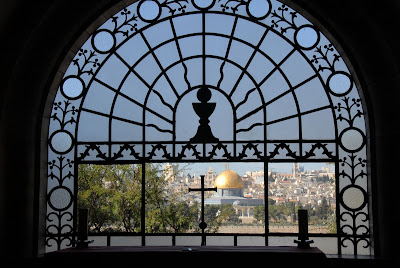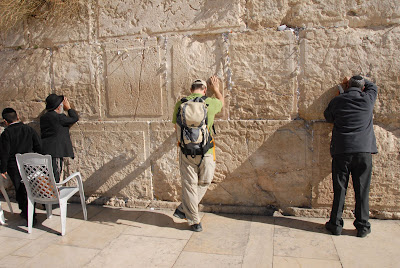Like many of my fellow-geeks, I'm a great Tolkien fan. So even though half a dozen volumes of The History of Middle Earth currently lie unread on my bookshelf, I was quite excited when Christopher Tolkien recently released a new novel by his father, The Children of Hurin. After a long bike ride today, I came home and finished it over dinner.
My reactions to it are mixed. On the one hand, I think the story itself is amazing: a tragedy that ranks with the best of world literature in its exploration of the many griefs that inhabit our world. As in the Silmarillion, Tolkien makes oblique reference to the Biblical story of the Fall: "A darkness lies behind us," Sador says,"and out of it few tales have come. The fathers of our fathers may have had things to tell, but they did not tell them. Even their names are forgotten." Indeed, for all its attempts to tell a story of the world before Christ -- for all its attempt to recreate the pagan world of the Norse myths that Tolkien loved -- the book could not have been written by other than a Christian.
That said, nearly all of this story has already been told in The Silmarillion, in the long chapter "Of Turin Turambar". The story is told somewhat more fully in The Children of Hurin, and some of the details are changed, but it's fundamentally the same story. Having been a year or two since I last read The Silmarillion, I wasn't able to pick out where the one was more expansive or even where the two differed. Even as it presents more details, The Children of Hurin still largely maintains the summarizing, distant style of The Silmarillion: if you liked The Silmarillion, you'll like The Children of Hurin; if you didn't enjoy the former, you won't enjoy the latter.
That said, it's worth reading. It was one of the stories which most engaged Tolkien's mind throughout his life, and it stands as a firm refutation to those who critique Tolkien for creating only two-dimensional characters, either all good or all bad. Indeed, in Tolkien's universe, LOTR stands distinct from the rest of his tales: it is the one story where all finally goes well, where nearly all of the main characters (Denethor, Boromir and Saruman excepted) stand true and remain admirable throughout. That cannot be said of any other story in Tolkien's universe.


